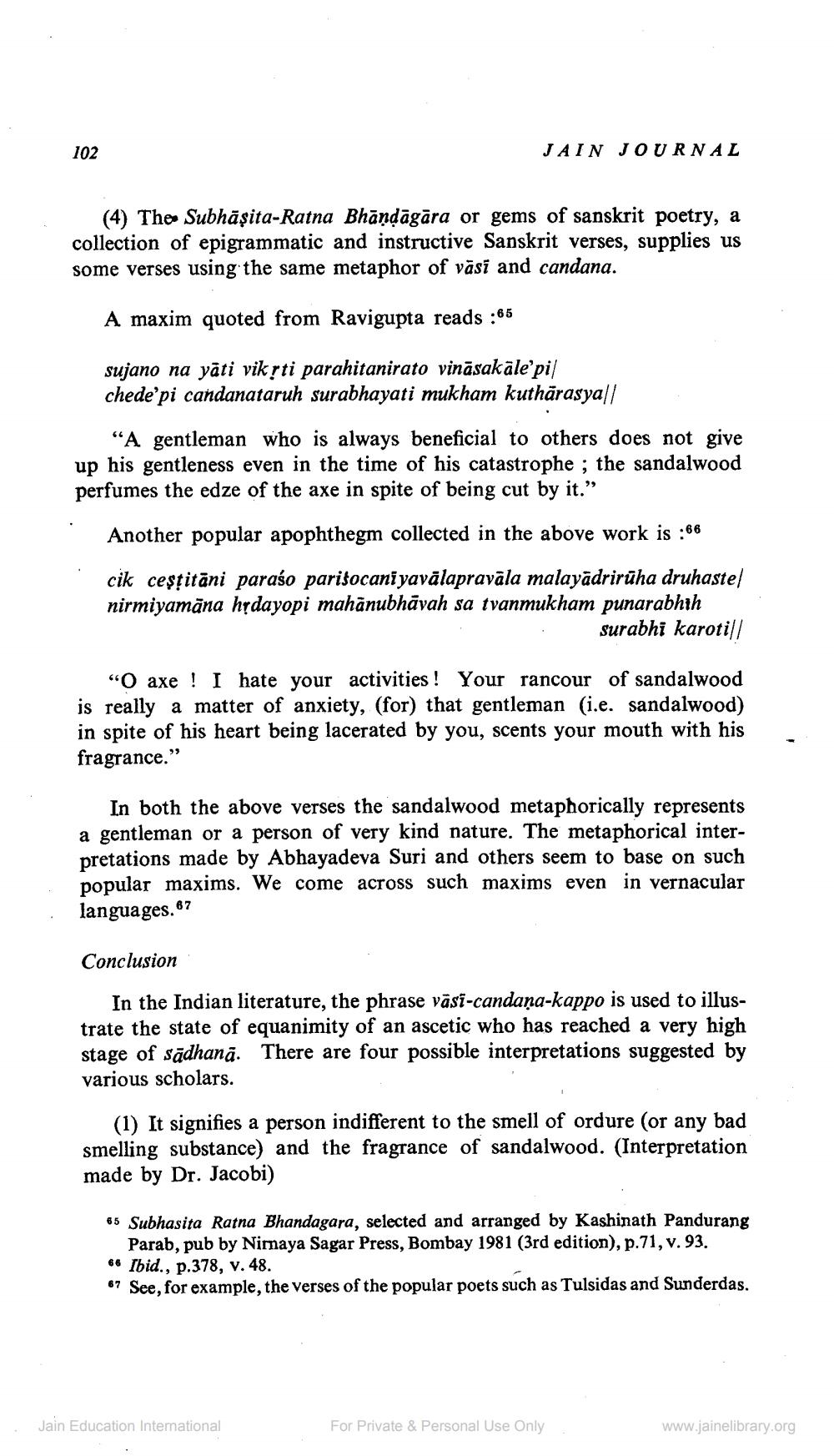________________
102
JAIN JOURNAL
(4) Tho. Subhāṣita-Ratna Bhāņdāgāra or gems of sanskrit poetry, a collection of epigrammatic and instructive Sanskrit verses, supplies us some verses using the same metaphor of vāsi and candana.
A maxim quoted from Ravigupta reads : 65
sujano na yāti vik rti parahitanirato vināsakāle'pi/ chede'pi candanataruh surabhayati mukham kuthārasya||
“A gentleman who is always beneficial to others does not give up his gentleness even in the time of his catastrophe ; the sandalwood perfumes the edze of the axe in spite of being cut by it.”
Another popular apophthegm collected in the above work is : 66
cik ceşțitāni parašo parisocaniyavālapravāla malayādrirūha druhastel nirmiyamāna hrdayopi mahanubhāvah sa tvanmukham punarabhih
surabhi karoti//
“O axe ! I hate your activities! Your rancour of sandalwood is really a matter of anxiety, (for) that gentleman (i.e. sandalwood) in spite of his heart being lacerated by you, scents your mouth with his fragrance.”
In both the above verses the sandalwood metaphorically represents a gentleman or a person of very kind nature. The metaphorical interpretations made by Abhayadeva Suri and others seem to base on such popular maxims. We come across such maxims even in vernacular languages. 67
Conclusion
In the Indian literature, the phrase väsi-candaņa-kappo is used to illustrate the state of equanimity of an ascetic who has reached a very high stage of sādhanā. There are four possible interpretations suggested by various scholars.
(1) It signifies a person indifferent to the smell of ordure (or any bad smelling substance) and the fragrance of sandalwood. (Interpretation made by Dr. Jacobi)
65 Subhasita Ratna Bhandagara, selected and arranged by Kashinath Pandurang
Parab, pub by Nirnaya Sagar Press, Bombay 1981 (3rd edition), p.71, v. 93. 66 Ibid., p.378, v. 48. 67 See, for example, the verses of the popular poets such as Tulsidas and Sunderdas.
Jain Education Interational
For Private & Personal Use Only
www.jainelibrary.org




